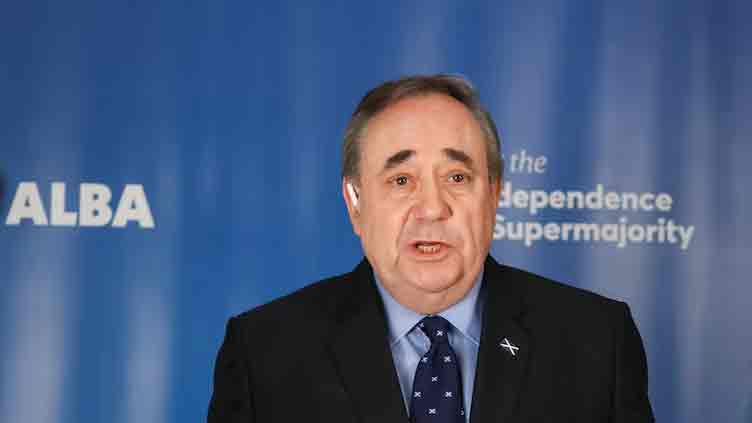Alex Salmond, 'monumental figure' of Scottish politics, dies at 69

World
Alex Salmond, 'monumental figure' of Scottish politics, dies at 69
LONDON (Reuters) - Scottish former First Minister Alex Salmond, who helped change the course of Scottish politics and pushed Scotland to the verge of independence from the United Kingdom, died on Saturday. He was 69.
Salmond, who headed the devolved Scottish government for seven years from 2007, is credited with helping boost support for Scottish independence during a 2014 referendum in which Scots voted 55%-45% in favour of staying in the United Kingdom.
The BBC said Salmond had collapsed after giving a speech in North Macedonia.
Leaders from across the political divide paid tributes to Salmond, a formidable debater who led the Scottish National Party (SNP) from 1990 to 2000 and from 2004 to 2014.
"For more than 30 years, Alex Salmond was a monumental figure of Scottish and UK politics. He leaves behind a lasting legacy," British Prime Minister Keir Starmer said.
"He cared deeply about Scotland's heritage, history, and culture, as well as the communities he represented."
After constitutional changes re-established a Scottish Parliament in 1999, Salmond oversaw the transformation of the SNP from a tiny number of lawmakers in London's parliament to the dominant political force in Scotland.
The independence movement that he led sent shock waves through Britain's political elite and energized Scottish politics.
His reputation was damaged by allegations of sexual assault dating back to when he was first minister from 2007 to 2014, including one charge of attempted rape. He was cleared of all charges in 2020, following a trial.
In 2021, Salmond established a party called Alba - after the Scottish Gaelic name for Scotland - which had little electoral success, and he courted controversy by hosting a political talk show on Russian channel RT.
Salmond joined the SNP as a student and was a prominent member of a socialist faction that agitated for change in the party.
The group was expelled from the party in 1982 but he was reinstated within a month.
He had worked as an economist at the Scottish government's agriculture department and the Royal Bank of Scotland.


